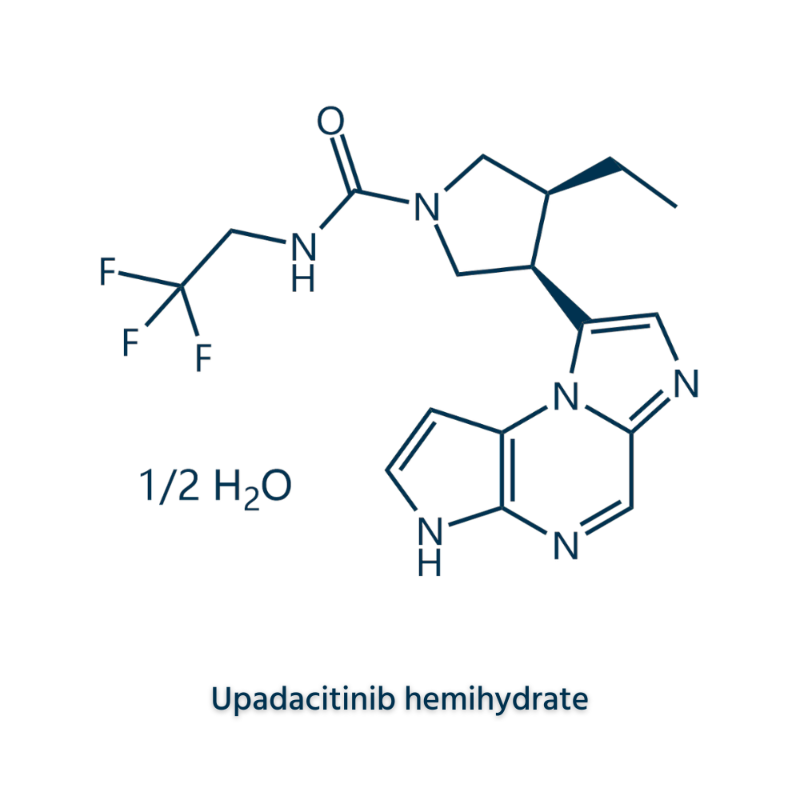-
Categories
-
Pharmaceutical Intermediates
-
Active Pharmaceutical Ingredients
-
Food Additives
- Industrial Coatings
- Agrochemicals
- Dyes and Pigments
- Surfactant
- Flavors and Fragrances
- Chemical Reagents
- Catalyst and Auxiliary
- Natural Products
- Inorganic Chemistry
-
Organic Chemistry
-
Biochemical Engineering
- Analytical Chemistry
-
Cosmetic Ingredient
- Water Treatment Chemical
-
Pharmaceutical Intermediates
Promotion
ECHEMI Mall
Wholesale
Weekly Price
Exhibition
News
-
Trade Service
Recently, Ji Hongbin's research group from the Center for Excellence in Molecular and Cell Science, Chinese Academy of Sciences, and Wang Yong's research group from the Institute of Mathematics and Systems Science, Chinese Academy of Sciences published an article in the National Science Review (NSR), revealing that the regulation of small cell lung cancer cells subtypes.
The key molecule TAZ in group transition and metastasis and its mechanism of action
.
Small cell lung cancer is the most malignant subtype of lung cancer and is prone to distant metastasis
.
The 5-year survival rate of patients with small cell lung cancer is about 7%, which is closely related to its high metastasis
.
The cellular subtypes responsible for SCLC metastasis and their regulatory mechanisms are still poorly understood
.
Using a spontaneous mouse model, the researchers found that there was heterogeneity in the primary tumor of small cell lung cancer: some tumor cells showed high expression of the neural adhesion molecule NCAM and low expression of the stromal cell molecule CD44, that is, the NCAMhiCD44lo/- phenotype.
Some tumor cells showed low expression of NCAM and high expression of CD44, that is, the phenotype of NCAMloCD44hi
.
In addition, distant metastases consistently exhibited NCAMhiCD44lo/- phenotype characteristics, suggesting that this cell subset may be responsible for SCLC metastasis
.
Subsequent experiments in mice with tumor metastasis confirmed this conjecture
.
Interestingly, NCAMloCD44hi cells are transformed into NCAMhiCD44lo/- cells with malignant tumor progression and thus acquire high metastatic potential
.
Mechanistic studies have found that with the malignant progression of small cell lung cancer, the core molecule TAZ of the Hippo signaling pathway is regulated by the chromatin remodeling complex SWI/SNF and down-regulated, triggering the transformation of the NCAMloCD44hi subgroup to the NCAMhiCD44lo/- subgroup, and ultimately promoting the development of small cell lung cancer.
cell lung cancer metastasis
.
TAZ activation can inversely promote the transition of the NCAMhiCD44lo/- subgroup to the NCAMloCD44hi subgroup, thereby inhibiting the metastasis of small cell lung cancer
.
Findings in these animal models are further supported by clinical data
.
Analysis of public single-cell sequencing data showed that the majority of tumor cells in small cell lung cancer metastases exhibited NCAMhiCD44lo/- signature
.
Analysis of Chinese clinical samples further found that NCAMhi/CD44lo/-/TAZlo expression signature was closely related to worse patient prognosis
.
In summary, the study found that the NCAMhiCD44lo/- subset is responsible for the metastasis of small cell lung cancer, which is derived from the transformation of cell subsets caused by TAZ down-regulation, and TAZ plays an important role in cell subsets.
It plays an important molecular switch role in the transformation and metastasis of small cell lung cancer
.
This study lays a solid theoretical foundation for an in-depth understanding of the metastasis mechanism of small cell lung cancer
.
Associate Professor Jin Yujuan, Zhao Qiqi and Feng Yan of the Center for Excellence in Molecular and Cellular Science, Chinese Academy of Sciences; Zhu Weikang, Institute of Mathematics and Systems Biology, Chinese Academy of Sciences; and Associate Professor Xiao Tian, Shenzhen University are the co-first authors of the paper, Ji Hongbin, Hu Liang and Mathematical Sciences of the Chinese Academy of Sciences He is the co-corresponding author of the paper with Wang Yong from the Institute of Systems Science
.
The work is supported by Researcher Liu Xinyuan, Researcher Chen Luonan, Researcher Zhu Xueliang, Researcher Zhang Lei, and Researcher Gao Dong; Professor Zhang Peng of Pulmonary Hospital; Professor Jiang Liyan of Shanghai Jiaotong University; Researcher Qin Jun, Institute of Nutrition and Health, Chinese Academy of Sciences; Fudan University University Professor Hou Yingyong and Li Fei; New York University Professor Kwok-Kin Wong and Hua Zhang; University of Cologne Professor Roman K Thomas and others supported by the National Natural Science Foundation of China, the National Key Research and Development Program, and the Chinese Academy of Sciences Strategic Pilot Technology Project
.
For research details, please read the original text▼[Click the link below or read the original text]Identification of TAZ as the essential molecular switch in orchestrating SCLC phenotypic transition and metastasishttps://doi.
org/10.
1093/nsr/nwab232
The key molecule TAZ in group transition and metastasis and its mechanism of action
.
Small cell lung cancer is the most malignant subtype of lung cancer and is prone to distant metastasis
.
The 5-year survival rate of patients with small cell lung cancer is about 7%, which is closely related to its high metastasis
.
The cellular subtypes responsible for SCLC metastasis and their regulatory mechanisms are still poorly understood
.
Using a spontaneous mouse model, the researchers found that there was heterogeneity in the primary tumor of small cell lung cancer: some tumor cells showed high expression of the neural adhesion molecule NCAM and low expression of the stromal cell molecule CD44, that is, the NCAMhiCD44lo/- phenotype.
Some tumor cells showed low expression of NCAM and high expression of CD44, that is, the phenotype of NCAMloCD44hi
.
In addition, distant metastases consistently exhibited NCAMhiCD44lo/- phenotype characteristics, suggesting that this cell subset may be responsible for SCLC metastasis
.
Subsequent experiments in mice with tumor metastasis confirmed this conjecture
.
Interestingly, NCAMloCD44hi cells are transformed into NCAMhiCD44lo/- cells with malignant tumor progression and thus acquire high metastatic potential
.
Mechanistic studies have found that with the malignant progression of small cell lung cancer, the core molecule TAZ of the Hippo signaling pathway is regulated by the chromatin remodeling complex SWI/SNF and down-regulated, triggering the transformation of the NCAMloCD44hi subgroup to the NCAMhiCD44lo/- subgroup, and ultimately promoting the development of small cell lung cancer.
cell lung cancer metastasis
.
TAZ activation can inversely promote the transition of the NCAMhiCD44lo/- subgroup to the NCAMloCD44hi subgroup, thereby inhibiting the metastasis of small cell lung cancer
.
Findings in these animal models are further supported by clinical data
.
Analysis of public single-cell sequencing data showed that the majority of tumor cells in small cell lung cancer metastases exhibited NCAMhiCD44lo/- signature
.
Analysis of Chinese clinical samples further found that NCAMhi/CD44lo/-/TAZlo expression signature was closely related to worse patient prognosis
.
In summary, the study found that the NCAMhiCD44lo/- subset is responsible for the metastasis of small cell lung cancer, which is derived from the transformation of cell subsets caused by TAZ down-regulation, and TAZ plays an important role in cell subsets.
It plays an important molecular switch role in the transformation and metastasis of small cell lung cancer
.
This study lays a solid theoretical foundation for an in-depth understanding of the metastasis mechanism of small cell lung cancer
.
Associate Professor Jin Yujuan, Zhao Qiqi and Feng Yan of the Center for Excellence in Molecular and Cellular Science, Chinese Academy of Sciences; Zhu Weikang, Institute of Mathematics and Systems Biology, Chinese Academy of Sciences; and Associate Professor Xiao Tian, Shenzhen University are the co-first authors of the paper, Ji Hongbin, Hu Liang and Mathematical Sciences of the Chinese Academy of Sciences He is the co-corresponding author of the paper with Wang Yong from the Institute of Systems Science
.
The work is supported by Researcher Liu Xinyuan, Researcher Chen Luonan, Researcher Zhu Xueliang, Researcher Zhang Lei, and Researcher Gao Dong; Professor Zhang Peng of Pulmonary Hospital; Professor Jiang Liyan of Shanghai Jiaotong University; Researcher Qin Jun, Institute of Nutrition and Health, Chinese Academy of Sciences; Fudan University University Professor Hou Yingyong and Li Fei; New York University Professor Kwok-Kin Wong and Hua Zhang; University of Cologne Professor Roman K Thomas and others supported by the National Natural Science Foundation of China, the National Key Research and Development Program, and the Chinese Academy of Sciences Strategic Pilot Technology Project
.
For research details, please read the original text▼[Click the link below or read the original text]Identification of TAZ as the essential molecular switch in orchestrating SCLC phenotypic transition and metastasishttps://doi.
org/10.
1093/nsr/nwab232







